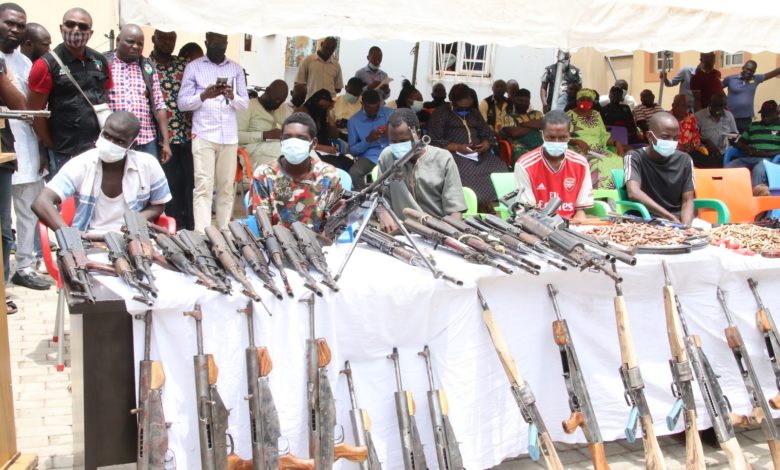Small Arms Destruction Day: A Reminder For Nigeria To Destroy Illicit Arms
The International Small Arms Destruction Day is a vital reminder of the dangers of surplus firearms and the need for transparent destruction of illicit firearms.

The International Small Arms Destruction Day, marked annually on July 9, is a reminder to the Nigerian Government on the dangers of excess firearms and the need for transparent documentation and destruction of captured, surrendered and recovered illicit firearms.
Small Arms Destruction Day was initiated by the United Nations in 2001 as a campaign against the threat posed by illicit traffic in small arms and light weapons to peace and security.
It highlights the dangers of excess, poorly-secured, and illegal weapons, as well as the importance of small arms destruction as a vital measure to reduce the proliferation and misuse of small arms.
Nigeria is currently confronted by diverse urban and rural security challenges amplified by the proliferation of factory and craft produced light weapons.
A Jan. 2020 study by Conflict Armament Research revealed that groups involved in inter-communal herder–farmer conflicts in ‘northern and central Nigeria’ use some locally made artisanal weapons, which increasingly represent a target of interdiction and regulation.
“However, they also use factory-produced weapons manufactured in Europe, East Asia, and the Middle East,” the report stated.
Even though, there are also concerns about the militarised nature of policing in the country and the disproportionate and indiscriminate use of lethal force, the government has continued to purchase arms and ammunition for security forces in response to security threats, and there have been debates on expanding the use of firearms to include the country’s Road Traffic agency and Fire service.
As such, the Small Arms Destruction Day has become a vital day for authorities to review the scale of firearms used by security forces and adoption of broader security interventions to address the symptoms and underlying factors behind the security challenges without expanding the acquisition and employment of lethal force.
Similarly, the government must establish a system and database for documentation and tracking of state firearms and local firearms crafted by blacksmiths to prevent illegal or misuse as well as safe and accountable destruction of captured, surrendered and recovered illicit firearms.
In Jan, the European Union, the Economic Community of West African States (ECOWAS) and the Leadership Initiative for Transformation and Empowerment (LITE Africa) carried out the process for the destruction of 260 arms and 5510 weapons in Calabar, Cross River State in South-south Nigeria.
“We need governments worldwide to do more to control guns through a variety of measures. When it comes to surplus stocks of guns and ammunition, too often governments focus on security and management to prevent thefts, diversion, and accidents instead of destroying guns and ammunition permanently,” International Action Network on Small Arms said in a statement on July 9, 2019.
“But stockpiling weapons costs more than destroying surpluses and creates a high risk of diversion into illegal markets.”
Support Our Journalism
There are millions of ordinary people affected by conflict in Africa whose stories are missing in the mainstream media. HumAngle is determined to tell those challenging and under-reported stories, hoping that the people impacted by these conflicts will find the safety and security they deserve.
To ensure that we continue to provide public service coverage, we have a small favour to ask you. We want you to be part of our journalistic endeavour by contributing a token to us.
Your donation will further promote a robust, free, and independent media.
Donate HereStay Closer To The Stories That Matter




